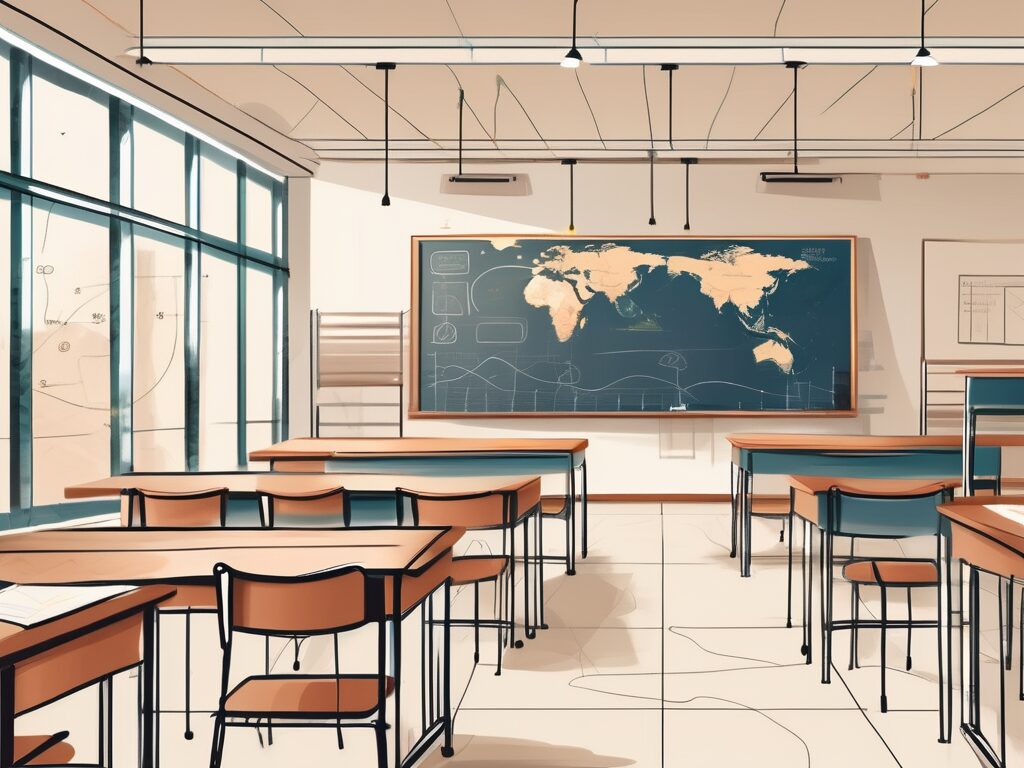Essential Experience Requirements for Educators in International Schools in Jordan
Entering the realm of international education presents a unique opportunity for professional advancement and personal enrichment. Jordan has emerged as a prominent destination for international educators, driven by an increasing demand for high-quality teaching. A frequent inquiry among prospective educators pertains to the requisite years of experience necessary to secure a position in an international school within Jordan. This guide aims to elucidate this subject, examining the various factors that influence hiring criteria.
Foundational Understanding
It is crucial to recognize that requirements for teaching positions can differ significantly across international schools. Variations arise from factors such as the school’s educational framework, the demographic composition of the student body, and the institution’s overarching mission and values. Nonetheless, certain commonalities can be identified to provide a general framework for understanding these requirements.
Generally, international schools in Jordan, akin to their global counterparts, stipulate a minimum of two years of teaching experience. This benchmark aligns with standards observed in countries such as the United Kingdom and the United States, where two years of experience is often considered the baseline for educational roles. However, it is important to note that this is not an absolute criterion; exceptions may be made based on the candidate’s qualifications and the specific needs of the institution.
Determinants of Experience Requirements
Subject Specialization
The demand for specific subject areas can significantly influence the experience requirements for educators. For example, there is often a heightened need for teachers specializing in STEM disciplines (Science, Technology, Engineering, Mathematics), which may result in more lenient experience prerequisites. Conversely, for subjects with a surplus of qualified educators, schools may impose stricter experience requirements.
Leadership Positions
For leadership roles, such as department heads or school administrators, the expectation for prior experience is understandably elevated. Institutions typically seek candidates with a minimum of five years of relevant experience in similar capacities, reflecting the standards prevalent in various professional sectors where a proven track record is essential.
Curricular Framework
The curriculum adopted by a school can also play a pivotal role in determining the experience required. For instance, institutions implementing the International Baccalaureate (IB) curriculum may necessitate that educators possess specific training and experience related to the IB framework, thereby increasing the overall experience expectations.
Strategies for Enhancing Employability
Advanced Qualifications
While teaching experience is a critical factor, it is not the sole consideration for hiring institutions. Additional qualifications, such as a Master’s degree in Education or a Teaching English as a Foreign Language (TEFL) certification, can significantly bolster a candidate’s prospects, even in the absence of extensive experience. This principle is consistent across various professions, where specialized credentials can offset a lack of practical experience.
Cultural Competence
International schools in Jordan, similar to those in other regions, place a high value on cultural competence. Experience in diverse educational settings or a demonstrated commitment to understanding and respecting various cultural contexts can enhance a candidate’s appeal. This is analogous to the expectations in multinational corporations, where cultural sensitivity is paramount.
Language Proficiency
Although English serves as the primary medium of instruction in most international schools, proficiency in Arabic or other languages can provide a competitive edge. This is particularly advantageous for roles that necessitate interaction with local families or administrative responsibilities.
Conclusion
In summary, while the prevailing expectation for teaching positions in international schools in Jordan is a minimum of two years of experience, this requirement is subject to variation based on multiple factors. By comprehensively understanding these determinants and actively enhancing one’s qualifications and competencies, candidates can improve their likelihood of securing a teaching position in Jordan, even with limited experience.
It is imperative to recognize that each educational institution possesses unique characteristics; thus, what may be applicable to one may not hold true for another. Therefore, thorough research into the specific requirements of targeted schools is essential, enabling candidates to tailor their applications effectively. Best wishes on your journey toward becoming an international educator in Jordan!
Elevate Your International Teaching Career with IPGCE
Are you prepared to navigate the complexities of stringent qualifications and limited career progression in international education? Enroll in the UK’s premier Teacher Training Course, the International Postgraduate Certificate in Education (iPGCE), and unlock a plethora of opportunities. With IPGCE, you will not only fulfill the experience prerequisites of international schools in Jordan but also experience a notable increase in interview callbacks, promotion rates, and salary potential. Engage with a global network of educators, acquire a profound understanding of international curricula, and balance your professional development with your current commitments through our flexible online study options. Do not allow insufficient credentials to impede your progress. Join the IPGCE program today and embark on a rewarding career in international education.

